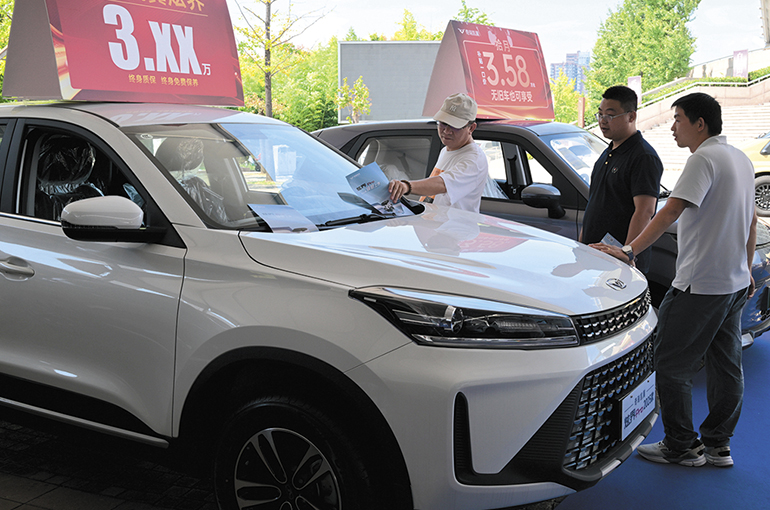 China’s Car Market Scales New Heights in September for Fifth Straight Month
China’s Car Market Scales New Heights in September for Fifth Straight Month(Yicai) Oct. 13 -- September was another bumper month for China’s auto market, as production, sales, and exports set new record highs for the fifth month in a row, driven by a buying rush ahead of purchase tax changes next year, a raft of new model launches, and supportive national and local subsidy programs.
Passenger car production jumped more than 17 percent to 2.838 million units last month from a year earlier, according to data released today by the China Passenger Car Association. That surpassed the previous September record of 2.44 million set in 2023.
Retail sales of passenger cars rose 6.3 percent to 2.241 million, while wholesale sales climbed over 12 percent to 2.803 million, the data also showed. Despite setting new records, both growth rates slowed from August.
The halving of the current 100 percent purchase tax waiver on new energy vehicles next year is pushing consumers to buy before year-end, according to CPCA Secretary-General Cui Dongshu.
A combination of peak seasonal demand, year-end sales drives, brisk NEV exports, progress in smart connectivity, and a steadier market thanks to China’s anti-involution campaign should help lift consumer confidence and sustain modest growth this quarter, he added.
Encouraged by regulators and trade groups, the anti-involution campaign refers to a push against cutthroat, self-defeating competition, especially the price wars and excessive model launches that have eroded profits across China’s auto industry.
Retail sales of Chinese-branded vehicles climbed 13 percent to 1.5 million last month, accounting for 67 percent of the total. German and Japanese brands lost market share, sinking to 14.3 percent and 11.6 percent from 16.6 percent and 12.7 percent, respectively, while US brands saw a marginal increase to 5.8 percent from 5.7 percent.
By vehicle type, retail sales of luxury autos fell 1 percent to 240,000, with their market share shrinking to 10.8 percent from 11.6 percent a year earlier. German premium carmakers are facing intense pressure, mainly as a result of the rapid rise of Chinese rivals in this segment.
BMW's China sales fell 0.4 percent to 147,000 in the third quarter from a year ago, while those of Mercedes-Benz and Porsche plunged 27 percent and 21 percent to 125,000 and 11,000, respectively.
It is clear that Chinese car brands are replacing German ones in the luxury segment, Cui said. High-end Chinese electric vehicles are designed not just for driving but for leisure and lifestyle, he said, adding that they deliver a luxurious ride, enhanced smart features, and a wide range of in-car experiences that have won strong consumer approval.
More than 70 new models were launched in September, also a record high.
As new energy vehicles develop, cars are becoming durable smart consumer goods, so launch cycles are getting shorter, Cui noted, adding that for Chinese automakers in particular, product design cycles have fallen from 48 months to less than 20 months.
Car exports soared nearly 21 percent year on year to about 533,000, with NEV shipments almost doubling to 211,000. Exports by BYD, Chery Automobile, and Tesla China were particularly strong.
Editor: Futura Costaglione